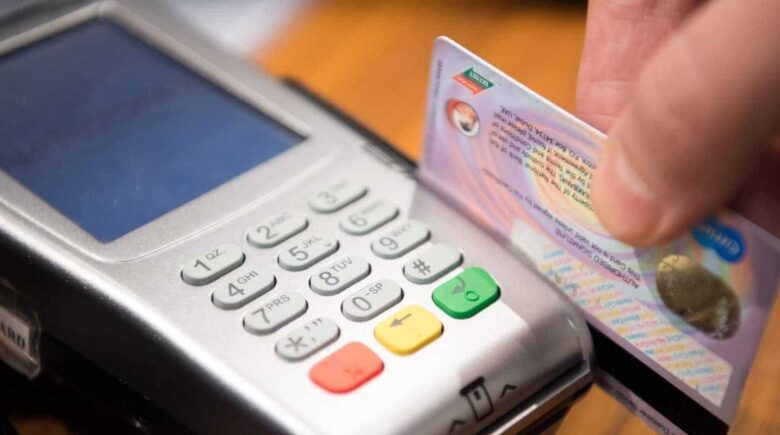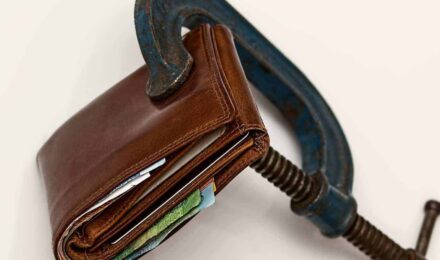Every time you reach into your wallet and pull out a little plastic, it can have a big impact on your credit score. (more…)
Sometimes, the result is positive. But in other situations, using a credit card can damage your credit score.
Here are five types of credit card transactions and other moves that can send your credit score south:
1. Opening a new credit card account
Credit card offers are everywhere. They fill our mailboxes, and store clerks often try to woo us into opening new accounts.
However, that new credit card comes at a price. When you apply for credit, the lender pulls your credit report to see if you are a worthy borrower. This is known as a “hard pull,” and it dings your credit score.
Although myFICO – the consumer division of Fair Isaac, the company that invented the FICO credit score used by 90% of top lenders – says the impact of each pull on your credit score is relatively minor, such inquiries add up. Any inquiry made within the past year can hurt your score.
This lowering of the credit score will last until you prove you can use the new credit responsibly, says Carolyn Warren, author of “Repair Your Credit Like the Pros.”
“They dock the score until there is a six-month track record,” she says. “Then, the score will go back up.”
The bottom line: Only apply for credit if you plan to use the card for a long time to come.
“When you are at the checkout counter and the clerk offers you 10% off your purchase (for opening an account), say ‘no thank you,’” Warren says. “It’s not worth hurting your score.”
2. Charging an item, then missing the payment
Credit cards are often the most convenient way to purchase goods and services. But miss a payment, and you’ll rue the day.
A history of missed payments can doom your credit score. In fact, 96% of borrowers with top credit scores have never missed a payment, according to myFICO.
The bottom line: Never use your credit card to make a purchase unless you are positive you can make the payments.
3. Making too many transactions
Credit cards are a double-edged sword. On the one hand, they typically offer you thousands of dollars in borrowing potential.
But on the other hand, having a lot of credit can cut you – and slash your credit score – if you use too much of it. Your credit utilization ratio is the amount of credit you use relative to the amount of credit available to you. If this number is too high, your score suffers.
Experts typically recommend keeping the ratio to 30% or less, and myFICO says borrowers with the best scores keep their ratio to less than 6%.
The bottom line: It’s good to have credit, but it’s even better to use it responsibly.
4. Closing an old credit card account
If opening a credit card account hurts your score, it seems likely that closing an account would have the opposite effect. Ironically, that’s not the case.
To see how this works, imagine a borrower with seven credit card accounts that have been open for several years.
“If they’ve had those cards for three years or more and are using them properly, those cards are providing positive credit for them,” Warren says.
But closing one or more of those accounts can hurt the borrower’s score because it lowers his or her credit utilization ratio.
Keeping this ratio below 50% – for both individual cards, and all your accounts in aggregate – is crucial to keeping a credit score high, Warren says.
If the borrower’s seven cards each have a $1,000 credit limit and the total debt across all the cards is $1,000, the aggregate balance is low. “You’re getting good points for that,” Warren says.
Close out five of those accounts, however, and suddenly, your credit utilization ratio is flirting with 50%.
“That’s going to hurt your score,” Warren says.
The bottom line: Warren recommends opening no more than three credit accounts. But if you are already far beyond that number, leave the accounts open. Use credit responsibly, and you should be fine.
“There are people with 800 credit scores who have seven lines of credit,” she says.
5. Playing the ‘spread the debt’ game
Yes, it’s true that putting all your transactions on one card can force the credit utilization ratio on that card to 50% or higher. And that will ding your score.
But if you try to solve your debt problem by simply using a bunch of cards to “spread the debt” around, you’re fooling yourself, Warren says.
“Spreading out your debt kind of implies that you are not able to pay off your debt when the bill statement arrives,” she says.
The simple fact that you cannot pay off all your debt each month indicates a significant problem, Warren says.
“You are outspending your income,” she says. “You are spending beyond your means.”
Instead of trying to spread out your debt, ask why you are carrying a balance. Then, get to work on paying off your debt as soon as you can.
“You get a better credit score if you pay off the balance every single month,” Warren says.






